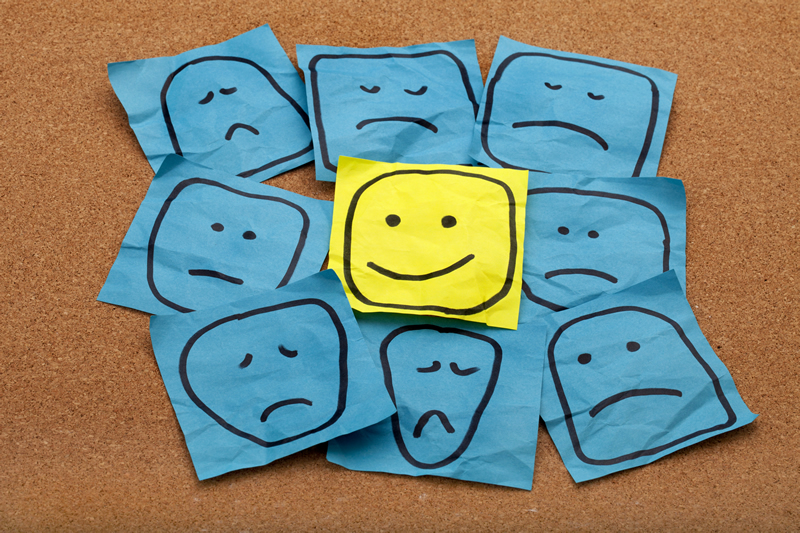Six Strategies for Managing Seasonal Affective Disorder (SAD)
15

As we enter the winter months, concerns about mental health and well-being may arise. Seasonal Affective Disorder (SAD) is a type of depression that some people experience during the winter, possibly due to factors such as reduced daylight hours. Not everyone is affected by SAD, but if you are, here are some self-help tips to navigate the upcoming months.
Understanding Seasonal Affective Disorder (SAD)
SAD is a form of depression that recurs at the same time each year, often triggered by changes in autumn and winter, such as decreased daylight. The darker days can disrupt your body's internal clock and affect mood-regulating hormones like serotonin and melatonin. It's also known as seasonal depression, winter blues, or winter depression.
Identifying SAD Symptoms
Key symptoms of SAD include difficulty waking up, increased sleep, fatigue, heightened appetite for starchy and sugary foods, weight gain, social withdrawal, anxiety, irritability, low mood, difficulty concentrating, diminished interest in sex, feelings of heaviness, sluggishness, and even suicidal thoughts.
Treatment for Seasonal Affective Disorder (SAD)
While the exact causes of SAD are not fully understood, some people find relief through light therapy, using a special lightbox to simulate sunlight. Consult with your doctor before using a SAD lightbox. Other treatment options for SAD align with those for general depression.
Six Self-Help Tips for Coping with Seasonal Affective Disorder (SAD)
Whether or not you have SAD, these self-help tips can enhance your well-being during the winter months:
1. Maximise Daylight Exposure:
Take advantage of available daylight by spending time outdoors. Even on cloudy days, the natural light can positively impact your mood. Consider incorporating outdoor activities into your daily routine.
2. Brighten Your Environment:
If you work indoors, maximise sunlight exposure by opening curtains or blinds. Sit near a window when possible. Additionally, bring elements of nature indoors with the inclusion of indoor plants to create a more uplifting atmosphere.
3. Maintain a Healthy Diet:
Support your brain function with a balanced, nutritious diet. Eat small, regular meals, stay hydrated, and avoid alcohol, as it can exacerbate symptoms.
4. Engage in Regular Exercise:
Exercise, particularly outdoors, can alleviate low mood and improve overall well-being. Activities like walking, jogging, or cycling can be beneficial, even in moderation.
5. Keep a Diary:
Documenting your SAD symptoms in a diary, whether on paper or using a mobile app, can reveal patterns. This insight helps identify activities that uplift or worsen your mood, aiding in developing coping strategies.
6. Plan Ahead for Difficult Days:
Recognise patterns of low mood and plan ahead for challenging days. Stock up on essentials, prepare meals in advance, and consider rescheduling commitments. Incorporate relaxing activities into your plans to promote a positive mindset.
These self-help strategies aim to empower individuals to manage the effects of SAD and enhance overall mental well-being during the winter season. For further advice on seeking mental health support contact DRCS on 0800 047 6861.
#DRCS #CounsellingServices #DerbyshireOther Articles
Derwent Rural Counselling Becomes A Registered Derbyshire Safe Plac
12
2025 Christmas Holiday & Festive Season Opening Hours For DRCS
17
November Means Movember & Talking About Mental Health
10
Shining A Light On Workplace Wellbeing With Stress Awareness Day 2025
5
Feel Good Friday With DRCS Appreciating Nature
31
Come & Join DRCS For A Health & Wellbeing Day On 16th November 2025 At Casa In Chesterfield
29
Derwent Rural Counselling Service (DRCS) Invitation to Become a Trustee
13
Meet The Team With Amanda Our Service Manager Here At DRCS
1
Fast Access To Counselling For You & Your Loved Ones With No Waiting List
13
Sparkling Glitter In The Rain With DRCS At Chesterfield Pride
25
